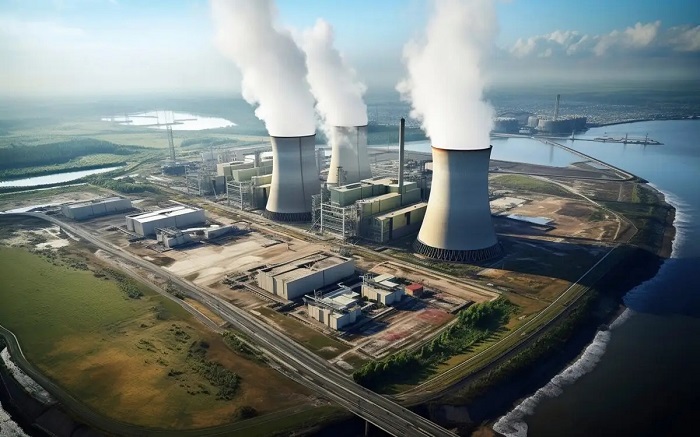[This is a cross post from Kazinform]
Interest in nuclear power has increased dramatically in recent decades amid efforts to reduce greenhouse gas emissions and the search for stable, reliable energy sources. Despite the obvious advantages associated with high productivity and low carbon dioxide emissions, nuclear energy continues to cause numerous disputes and contradictions, Kazinform reports with reference to Energyprom.
Currently, there are 440 active nuclear reactors in 32 countries around the world. These reactors generate 10% of the world’s electricity production. Nuclear energy is popular in many developed and a number of developing countries, especially in European countries.
So, for example, in France, the share of nuclear energy in total electricity production in 2023 amounted to an impressive 64.8%. Also, an impressive share of nuclear energy is observed in Slovakia – 61.3%, Hungary – 48.8%, Finland – 42%, Belgium – 41.2%, Bulgaria – 40.4%, Czech Republic – 40%. Meanwhile, in “green” Switzerland and Sweden, the share of nuclear energy is 32.4% and 28.6%, respectively. And even in the “oil and gas” UAE and the USA, the figure is quite high – 19.7% and 18.6%, respectively.
Partners of the Republic of Kazakhstan in the EAEU:
Armenia – 31.1%;
Belarus – 28.6%;
Russia – 18.4%.
By the number of operating nuclear power reactors in the world, the top 5 countries include:
USA – 94 reactors;
China – 56 reactors;
France – 56 reactors;
Russia – 36 reactors;
Japan – 33 reactors.
Nuclear energy has been gaining popularity in recent years amid a shift away from carbon-based energy sources. Thus, as of July of this year, 59 nuclear reactors are being built in the world. China took first place with 25 blocks. Behind it is India – 7 reactors. Turkey, Egypt and Russia are building 4 reactors each.
It is noted that since the average age of more than 260 operating nuclear reactors worldwide is more than 30 years, some reactors are due to retire soon. Most nuclear power plants have a lifespan of 30 to 40 years. However, major reactor components can be replaced, and some countries have renewed licenses to extend the life of existing plants.
The annual number of nuclear reactor decommissionings fluctuates. In total, over the past 5 years, between 2019 and 2023, 39 reactors have been shut down.
In addition to operating life, the reason for the shutdown of nuclear reactors may be domestic politics. For example, in Germany, for 40 years there was a heated debate about the abandonment of nuclear energy. While other European countries are actively using nuclear power plants, Germany finally abandoned this energy in 2023.
So, while some countries are moving away from nuclear power, others are continuing to push the industry as hard as possible, emphasizing its importance for long-term energy security and reducing their carbon footprint.
Nuclear energy, despite conflicting opinions and technical challenges, remains an important element of the global energy strategy. With the growing need for clean energy, the role of nuclear energy is likely to only grow, providing a balance between the environmental and economic needs of humanity. /// nCa, 19 August 2024 (cross post from Kazinform)
